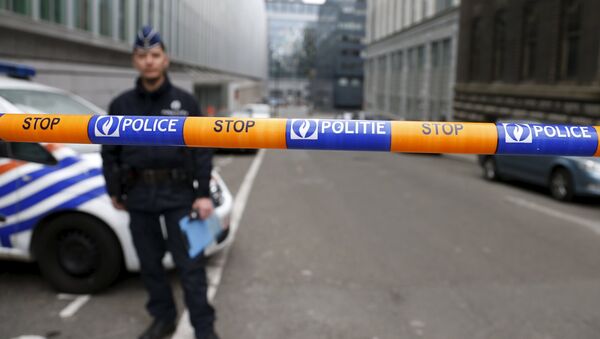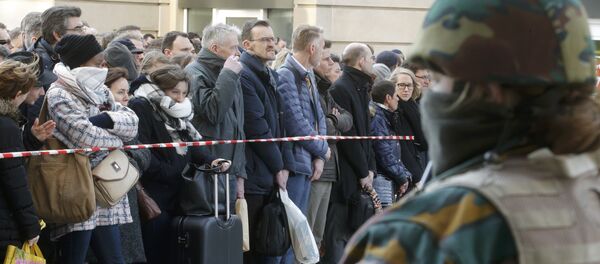Critics say the structure of the Belgian police service is totally unfit for purpose — based as it is on a federal and local system. The federal police answer to six governments and includes separate directorates for traffic, railway, maritime and river, airport, air support and dog police.
Meanwhile, the local police service comprises 196 police forces constituted from the former communal and gendarmerie brigade, working under the mayor of the municipalities. Around 50 police forces cover the territory of one municipality or city zone.
"Part of the problem is that Belgian intelligence doesn't share timely information with people in the Belgian police who need to know it. The Belgian police is very fragmented: they speak two different languages, there are six different forces spread across 19 boroughs in Brussels. It's not very connected, it's not very joined-up. This means that vital clues are missed," security correspondent Frank Gardner told the BBC.
#BrusselsAttacks suspected bombers were brothers and known to police — big questions for Belgian intelligence
— Natalie Powell (@NatalieDPowell) March 23, 2016
"It is extraordinary that the most wanted man in Europe — Salah Abdeslam — was able to hide, practically in plain sight, in that borough of Molenbeek for four months — right under the noses of the police. That tells us something else — that the police in Belgium have very poor community relations. People aren't telling the police. They are not giving them tip-offs," he said.
Intelligence Failures
Apart from criticism of the lack of coordination within the police, many security analysts say there is clear evidence that the Belgian intelligence agencies were completely overwhelmed by the scale of radicalization.
'Why Belgium?' via @guardian with ICSR data. https://t.co/aa1tO4vQVp pic.twitter.com/8cSz1RHSIF
— ICSR (@ICSR_Centre) March 23, 2016
Dr Peter Neumann, director of the International Centre for the Study of Radicalization told the BBC: "Parts of Brussels have effectively been abandoned by the state — including the security agencies — not for years, maybe for decades. I interviewed the former head of Belgium's equivalent of MI5 and he told me that he and his colleagues had been warning the politicians that the Belgian security service was under-financed, under-resourced [and] under-staffed.
"They warned in the months running up to the Paris attacks about the growing problem of Islamist radicalization, but the politicians didn't want to know. They didn't want to listen."
Paris Attacker Missed Opportunity
Peter Taylor, presenter of the BBC Panorama TV program said: "We've seen many intelligence reports that indicate that — since the beginning of last year — there was a life-and-death race between the intelligence services and [Paris attacks mastermind Abdelhamid Abaaoud who was subsequently killed. The intelligence indicates that this race was getting extremely serious towards the end of last year, before the Paris Attacks.
European Commission says Belgium attacks "prove" need for national intelligence co-operation through EU structures.
— Matthew Holehouse (@mattholehouse) March 23, 2016
"We saw an intelligence report that said that [UK intelligence services] MI5 and MI6 met with a European partner agency because they were increasingly concerned about Abaaoud and the network. In particular, they had received an intelligence report that he was preparing to send 60 jihadists into Europe.
"Another meeting was then planned with other agencies to set up a specialist team to target Abaaoud. The timing of that meeting originally was for November 13 last year. That, of course, tragically, was the date of the Paris attacks," he said.



